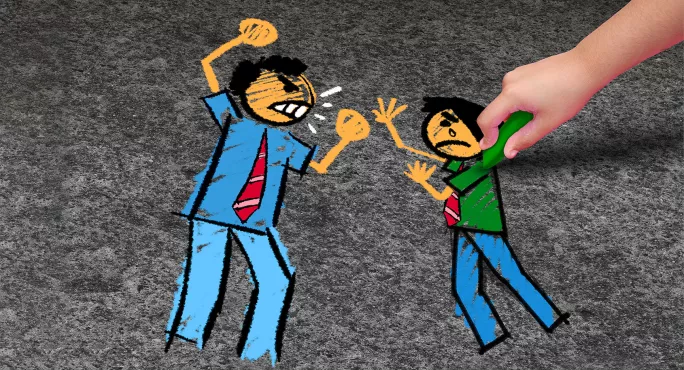Is punishing bullying ‘counterproductive’?

A Scottish council’s anti-bullying policy has been described as “tragic” by the UK government’s behaviour tsar, because it advocates dealing with incidents “educationally, supportively and restoratively, rather than punitively” - and describes punitive approaches as “counterproductive”.
Tom Bennett, who is also the director and founder of researchED, a teacher-led project that aims to make staff research literate, hit out at the policy on social media saying it would “make bullying worse, not better”.
He added: “It would be wonderful if bullying could truly be prevented by purely pastoral methods. But humans don’t work solely on such a basis. Kids need boundaries, and boundaries require sanctions. This is ideological activism, and the ones that pay are children devastated by cruelty.”
In a recent article on behaviour for Tes Scotland, headteacher Stuart Clark said that “alongside focusing on positive relationships, schools must not forget about the importance of clear expectations and boundaries”.
He added: “Structure, boundaries and positive relationships can also require the unpopular word ‘consequences’.”
However, parent’s body Connect said the Fife approach to bullying promoted “open communication, where hurtful behaviour is promptly addressed and resolved”.
- Background: Violence in schools summit announced
- Opinion: Balance and boundaries are key to behaviour
- School safety: Teaching has become ‘unsafe and abusive’
- Behaviour: Non-punitive approach ‘often ineffective’
- Long read: Scotland’s ‘behaviour emergency’
Connect executive director, Patrick McGlinchey, added: “We applaud Fife Council for adopting a therapeutic, restorative approach that prioritises behavioural and attitudinal change over punitive measures.
“Connect calls upon all local authorities to ensure that parents and carers are actively involved in the development of school anti-bullying policies and that the policy is readily available and consistently promoted to children, young people, and their families, with a clear outline of how schools will respond to bullying as a cohesive school community.”
Fife Council’s revised anti-bullying policy says that the council aims “to ensure that children do not bully others because they understand the harm it causes and choose not to cause such harm”.
When bullying does occur, it says that “we need to engage with them educationally, supportively and restoratively, rather than punitively”.
It continues: “Such an approach may, understandably, be challenged by those who believe that children who bully should experience only negative consequences due to their behaviour.
“Our firm belief is that such an approach is ultimately counterproductive and, therefore, all staff, children and parents play an active role in developing and maintaining a school’s anti-bullying policy based on this principle; involvement and ownership contribute significantly to effectiveness.”
Anti-bullying policy
The anti-bullying policy was approved today at a council meeting, although it was decided there should be a progress report after six months following concerns about whether more specific guidance was needed on racist bullying and also in relation to supporting care-experienced young people.
During the meeting, Fife councillors spoke about disturbing cases of violence in local schools. One councillor said that, in a recent case, a pupil had been “very violently assaulted” and the family had ended up leaving the school and, ultimately, the area because “very shortly after the assault” the perpetrators were back in school.
Another councillor asked: “What does a kid have to do to get expelled now? Because I’ve got one that’s got two charges of assault on them and they’re still in the school every day and still carrying out bullying on a daily basis?
Shelagh McLean, head of education and children’s services, acknowledged the “behaviour challenges” in the authority’s schools - highlighting that worsening behaviour was a concern across Scotland.
She said “the number of severe incidents” in Fife had fallen between January and March and between March “and now” - although she also said getting good quality data on bullying was a work in progress.
She said that it was not possible to expel pupils in Scotland but schools could exclude pupils for up to 10 days and that Fife schools used exclusion “where it is appropriate to do so and where we are allowed to do so legally”.
A key facet of the approach in Fife was the Mentors in Violence Prevention programme, she said.
In May, education secretary Jenny Gilruth committed to holding a violence in schools summit to address rising concerns about behaviour; the second of these meetings was held last week.
You need a Tes subscription to read this article
Subscribe now to read this article and get other subscriber-only content:
- Unlimited access to all Tes magazine content
- Exclusive subscriber-only stories
- Award-winning email newsletters
Already a subscriber? Log in
You need a subscription to read this article
Subscribe now to read this article and get other subscriber-only content, including:
- Unlimited access to all Tes magazine content
- Exclusive subscriber-only stories
- Award-winning email newsletters



